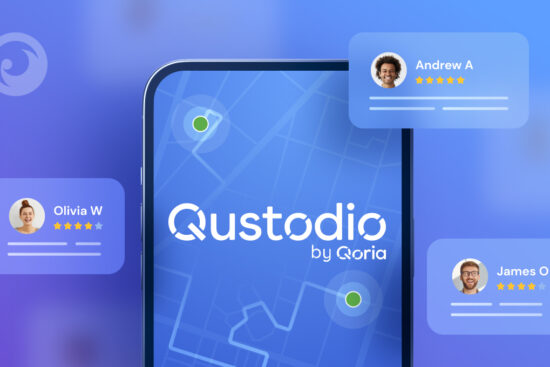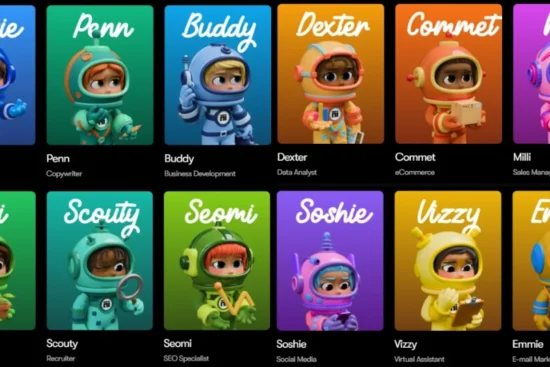
Education has evolved drastically in recent years, with technology playing a pivotal role in reshaping the learning landscape. Gone are the days when quality education was confined to traditional classrooms with hefty price tags. In this comprehensive guide, we delve into the realm of innovative learning on a budget, exploring a range of tech tools that are revolutionizing education. Whether you’re a student looking to enhance your learning experience or an educator seeking effective teaching methods, this article will uncover a treasure trove of budget-friendly resources that are transforming the way we learn and teach.
The Rise of EdTech: A Paradigm Shift in Education
EdTech, short for Educational Technology, has emerged as a game-changer in the world of learning. With the convergence of digital tools and educational principles, EdTech platforms offer a plethora of interactive and engaging learning experiences. From virtual classrooms to interactive simulations, these platforms provide students and educators with innovative ways to explore complex subjects. According to a report by EdTechXGlobal, the global EdTech market is projected to reach $252 billion by 2020, highlighting the growing significance of technology in education.
Open Educational Resources (OERs): Learning Beyond Boundaries
One of the most impactful trends in modern education is the proliferation of Open Educational Resources (OERs). These freely accessible resources include textbooks, videos, and interactive modules that are designed to enhance learning without putting a strain on your budget. Organizations like OpenStax and Khan Academy offer a wide range of OERs, empowering learners and educators to access high-quality materials without incurring exorbitant costs.
Interactive Learning Platforms: Fostering Engagement and Collaboration
Interactive learning platforms are reshaping the traditional classroom experience. Tools like Padlet and Edpuzzle allow educators to create dynamic and interactive lessons that capture students’ attention. These platforms enable collaborative learning, where students can participate actively through discussions, quizzes, and creative projects. A study published in the Journal of Online Learning and Teaching revealed that interactive learning improves student engagement and information retention.
Gamification in Education: Making Learning Fun and Effective
Gamification, the integration of game elements in non-game contexts, has gained traction in education. Platforms like Kahoot! and Quizlet transform learning into an enjoyable and competitive experience. By incorporating elements such as quizzes, leaderboards, and rewards, gamification motivates students to actively participate and retain knowledge. Research conducted at the University of Colorado Denver found that gamified learning increases student engagement and enhances problem-solving skills.
Virtual Reality (VR) and Augmented Reality (AR): Immersive Learning Adventures
Virtual Reality (VR) and Augmented Reality (AR) have opened new dimensions in education. Imagine history lessons coming to life through virtual tours of ancient civilizations or biology classes allowing students to explore the human body in 3D. VR and AR technologies provide immersive experiences that foster deeper understanding and retention. According to a study published in the Journal of Educational Psychology, immersive technologies enhance spatial learning and conceptual understanding.
YouTube EDU: A Treasure Trove of Knowledge
YouTube isn’t just a platform for cat videos and music. YouTube EDU hosts a vast collection of educational channels spanning various subjects and skill levels. Channels like CrashCourse and TED-Ed offer engaging lessons that simplify complex topics. With its user-friendly interface and diverse content, YouTube EDU has become a go-to resource for both educators and learners seeking easily digestible information.
Language Learning Apps: Mastering Multilingualism
Learning a new language has never been easier, thanks to language learning apps like Duolingo and Babbel. These apps offer interactive lessons, quizzes, and real-life simulations to facilitate language acquisition. A study published in the journal Educational Media International found that language learning apps enhance motivation and provide learners with a flexible way to acquire new linguistic skills.
Coding Platforms: Nurturing Future Innovators
In the digital age, coding has become a crucial skill for future success. Platforms like Scratch and Codecademy introduce coding concepts in a user-friendly manner, making it accessible to learners of all ages. Learning to code not only enhances problem-solving skills but also fosters creativity and critical thinking. A report by Burning Glass Technologies highlighted that coding skills are in demand across various industries, making them a valuable asset for career advancement.
Podcasts for Learning on the Go
Podcasts have emerged as a convenient way to learn while multitasking. Educational podcasts cover a wide range of subjects, from history and science to personal development and business strategies. Platforms like Spotify and Apple Podcasts host a plethora of educational content that caters to diverse interests. A study conducted by The Podcast Host revealed that 68% of podcast listeners believe that podcasts make them smarter.
The Bottom Line: Unlocking Affordable Learning Potential
In a world driven by innovation, education no longer needs to be a financial burden. The tech tools mentioned in this article exemplify the accessibility of quality learning experiences without breaking the bank. By harnessing the power of EdTech, OERs, interactive platforms, and immersive technologies, both learners and educators can embark on a journey of discovery, empowerment, and growth.
Commonly Asked Questions
Q1. Are these tech tools suitable for all age groups?
Absolutely! Many of these tools cater to learners of all ages, from kindergarten to lifelong learners seeking personal development.
Q2. How can I ensure the quality of content in OERs?
Open Educational Resources are curated by experts and educators, ensuring their credibility and accuracy.
Q3. Are gamified learning platforms effective for college-level subjects?
Yes, gamified learning platforms can be adapted to various subjects and educational levels, enhancing engagement and understanding.
Q4. Can VR and AR be integrated into traditional classroom settings?
Yes, many educators are incorporating VR and AR technologies to enhance traditional lessons and provide immersive experiences.
Q5. Are coding platforms suitable for beginners with no programming experience?
Absolutely! Coding platforms like Scratch offer beginner-friendly interfaces and tutorials to help newcomers grasp coding concepts.












